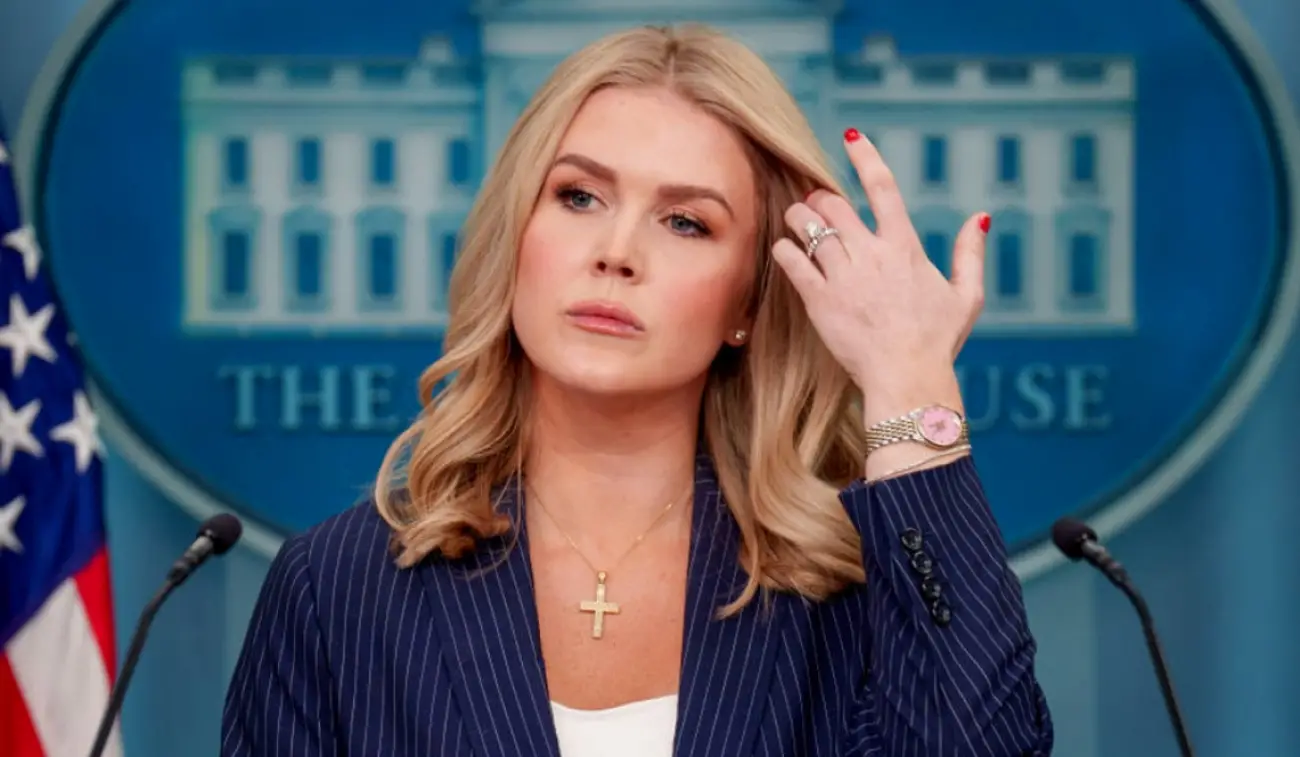Karoline Leavitt Responds to CNN’s Questions About Elon Musk’s Security Status
Title: Press Secretary Karoline Leavitt Defends Elon Musk’s Role Amid Media Scrutiny
During a recent press briefing, White House Press Secretary Karoline Leavitt responded firmly to CNN reporter Kaitlan Collins’ persistent questioning about Elon Musk’s involvement with the government. Collins sought clarification about Musk’s status as a special government employee and whether he had passed a background check, pressing Leavitt for details. The exchange quickly became a focal point of the briefing, highlighting the growing public curiosity about Musk’s unique role in government affairs.
I. The Press Briefing Exchange
Leavitt, accompanied by Middle East envoy Steve Witkoff and National Security Advisor Michael Waltz, fielded a range of questions during the session. However, it was Collins’ repeated inquiries about Musk that drew the most attention. She asked if Musk was a special government employee and sought confirmation of his security clearance. Leavitt responded that Musk was indeed a special government employee and had adhered to all relevant federal laws. When Collins pressed further, Leavitt acknowledged she did not have specific details on his security clearance but promised to follow up later.
While this exchange may have seemed like a routine back-and-forth, it underscored the broader conversation about Musk’s role in government and the implications of his involvement in high-level government initiatives.
II. The Controversy Over Musk’s Role
The question of Musk’s security clearance has gained attention beyond the White House press room. Some see Musk’s designation as a special government employee as a sign of the increasing role private sector leaders play in government projects. However, this involvement has sparked debates about oversight and transparency, particularly regarding high-profile figures like Musk.
Some critics argue that Musk’s achievements, particularly in space exploration and technology, should exempt him from typical security clearance procedures. Legal experts, such as attorney Arthur Aidala, have suggested that Musk’s record of innovation might justify a more flexible approach to background checks. Meanwhile, others raise concerns about the potential for preferential treatment and the impact this might have on the broader vetting process within federal agencies.
III. Elon Musk’s Government Involvement
Musk’s connection to government affairs goes beyond the questions surrounding his security clearance. Musk has been involved in several initiatives, including his work with the Department of Government Efficiency (DOGE), a program focused on streamlining federal operations and reducing waste. His role in these efforts has drawn both support and criticism. While some argue that his expertise in technology and efficiency makes him an ideal candidate for such a role, others question whether his high profile compromises the objectivity of government programs.
In addition to his work with DOGE, Musk made headlines earlier this year when he became involved in a mission to bring two astronauts back to Earth after a prolonged stay in space. Musk’s commitment to the rescue mission was widely praised, though it also led to critiques of how previous administrations handled space missions. Musk’s willingness to take on this responsibility underscores his broader involvement in government-related projects.
IV. Media Scrutiny and Public Debate
The exchange between Leavitt and Collins reflects the ongoing media scrutiny of Musk’s role in government. While questions about security clearances and background checks are important, some feel that the media’s focus on Musk’s personal status may detract from more pressing issues. The attention paid to Musk’s background serves as a reminder of how public figures can quickly become the subject of speculation and debate when their roles intersect with government.
Supporters of Musk’s involvement in government argue that his contributions to technological innovation and space exploration have already proven his value. They believe that his work is closely aligned with the administration’s goals of efficiency and reform. Leavitt emphasized that Musk’s role had been properly vetted and that his actions were in full compliance with federal laws, signaling the administration’s confidence in his ability to contribute to public service.
V. Moving Forward: A New Model for Government Efficiency
As the administration continues to prioritize efficiency and reform, Musk’s involvement in government may serve as a model for future initiatives. By integrating private sector leaders into federal projects, the government aims to adopt a more dynamic approach to addressing bureaucratic inefficiencies.
At the same time, critics argue that all government employees should be subject to the same rigorous standards, regardless of their status or public persona. They stress the need for transparency and consistency in how individuals are integrated into government functions, particularly when it comes to security clearances and background checks.
VI. Conclusion: Innovation and Accountability
The recent exchange between Leavitt and Collins highlights the growing tension between the desire for transparency in government operations and the need for effective, efficient decision-making. As figures like Elon Musk continue to play a significant role in government initiatives, questions about their backgrounds and qualifications will remain a key point of discussion.
For now, the administration is focused on promoting transparency and accountability in government operations while also seeking to leverage the expertise of innovators like Musk to drive change. The balance between these two priorities will likely shape the future of government oversight, and as new challenges arise, the public and media will continue to ask important questions about the integration of private sector leaders into public service.
